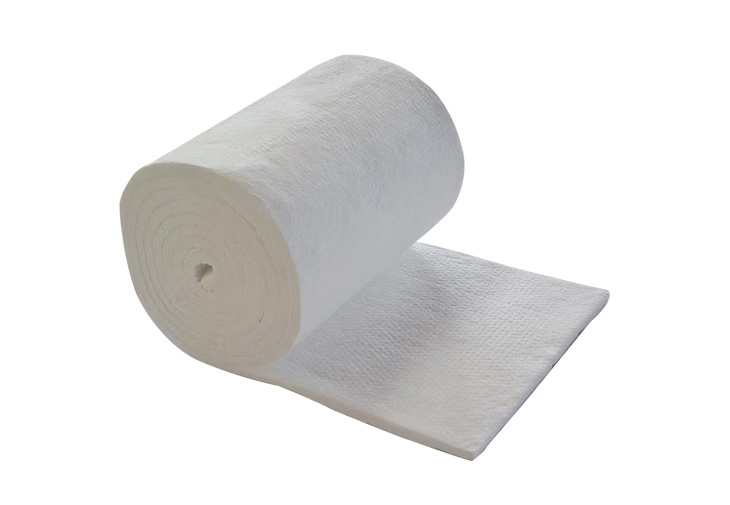
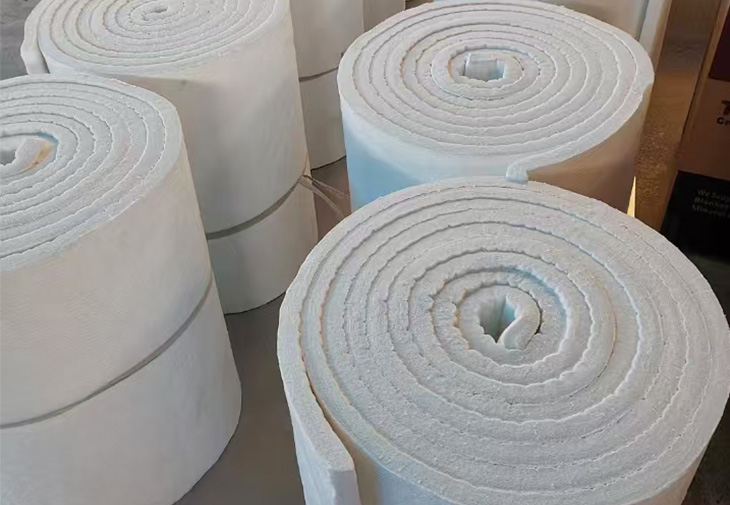
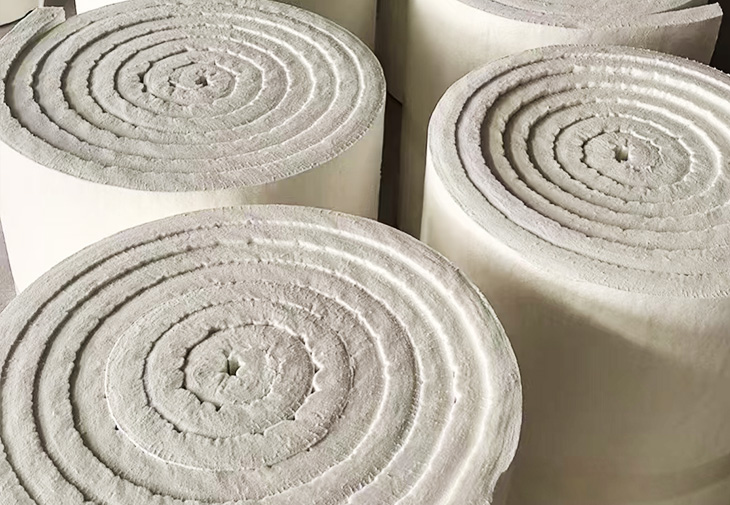
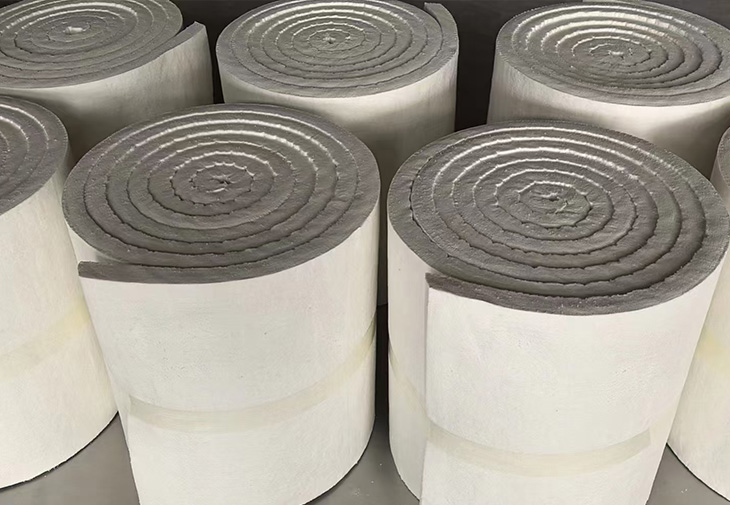




Ceramic Fiber Blankets is a fibrous lightweight refractory material, which is mainly made of aluminum silicate, silicon dioxide, alumina, zirconium oxide and other materials, and is suitable for various high-temperature, high-pressure, and non-wear environments.
Ceramic Fiber Blankets are widely used across sectors requiring flexible thermal insulation: in the metallurgical industry, they line steel mill furnace doors and ladle covers to retain heat and protect operators from high temperatures; in the construction industry, they insulate industrial workshop walls and roof panels, maintaining stable indoor temperatures and reducing heating/cooling costs; in the petrochemical industry, they wrap heat exchanger pipelines and reaction vessel exteriors, improving energy efficiency and preventing heat-related safety hazards; in the automotive industry, they insulate exhaust systems of high-performance vehicles to reduce under-hood heat radiation. Each application leverages their unique combination of flexibility and insulation.
(1) Excellent thermal insulation performance
(2) Excellent thermal stability: the fiber has good resistance to devitrification
(3) Low heat storage
(4) Tough, elastic and strong blanket,
(5) Not easy to tear before and after heating
(6) Thermal shock resistance
(7) Good acoustic properties
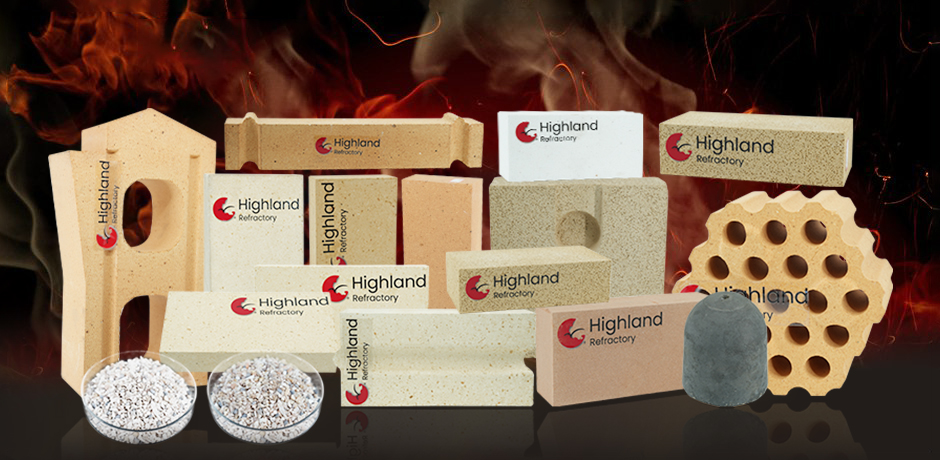
(1) Power generation, especially heat recovery boiler pipe insulation
(2) Industrial and commercial chimney insulation
(3) Furnace, boiler and heater linings
(4) Pipe wrapping
(5) Backup linings for kilns and furnaces
(6) Consumer products
(7) Heat storage insulation
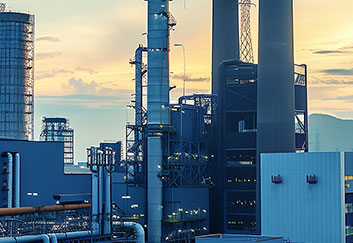
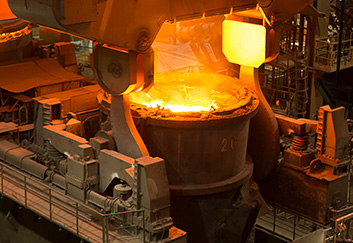
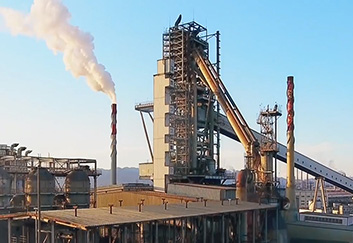
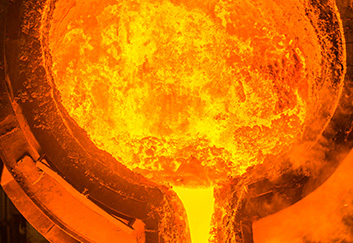
|
type |
1050 Common |
1260 STD |
1350ZrAI |
1450 HZ |
|
|
Operating temperature(℃) |
950°C |
1150°C |
1250°C |
1350°C |
|
|
Bulk density(kg/m3) |
96/128 |
||||
|
Permanent line changes(%) |
950°Cx24h ≤-3 |
1050°Cx24h ≤-3 |
1200°Cx24h ≤-3 |
1350°Cx24h ≤-3 |
|
|
Thermal conductivity W/(m·k)(128kg/m3) |
0.15(600℃) 0.22(800℃) |
0.8(600℃) 0.19(800℃) |
0.99(600℃) 0.2(800℃) |
0.16(600℃) 0.2(1000℃) |
|
|
tensile strength(25mm) |
≥0.04 |
≥0.05 |
≥0.04 |
≥0.06 |
|
|
Chemical composition |
Al2O3(%) |
44 |
44-46 |
52-55 |
39-40 |
|
A1203+SiO2(%) |
≥96 |
≥98 |
≥99 |
- |
|
|
Zr02(%) |
- |
- |
- |
15-17 |
|
|
Fe203(%) |
≤1.0 |
≤0.8 |
≤0.2 |
≤0.2 |
|
|
Na20+K20(%) |
≤0.4 |
≤0.3 |
≤0.2 |
≤0.2 |
|
|
Size |
14400x610/1220x12.5mm |
||||
|
7200x610/1220x25mm |
|||||
|
3600x610/1220x50mm |
|||||
|
(Support customer customized services 6mm-50mm) |
|||||
Highland Refractory classifies Ceramic Fiber Blankets based on temperature resistance and functional needs to fit diverse scenarios, including Standard Ceramic Fiber Blankets (for 1000-1260℃, ideal for industrial furnace insulation layers), High-Temperature Ceramic Fiber Blankets (withstanding up to 1430℃, suitable for boiler inner linings), and Waterproof Ceramic Fiber Blankets (added with moisture-proof additives, designed for outdoor equipment like power plant chimneys). Each type is made of high-purity alumina-silica fibers, balancing flexibility and reliable thermal insulation performance for different high-temperature environments.
Highland’s Ceramic Fiber Blankets stand out in energy efficiency and usability: their low thermal conductivity (≤0.12W/(m·K) at 800℃) reduces equipment heat loss by 30-40%, cutting energy consumption significantly; their lightweight design (bulk density 96-128kg/m³) eases transportation and on-site installation, even for high-altitude or narrow spaces; they are also easy to cut, trim, and fit, adapting seamlessly to irregular equipment surfaces like furnace corners or curved pipelines without gaps. These strengths make Ceramic Fiber Blankets a cost-effective solution for thermal insulation needs.
Ceramic Fiber Blankets are widely used across sectors requiring flexible thermal insulation: in the metallurgical industry, they line steel mill furnace doors and ladle covers to retain heat and protect operators from high temperatures; in the construction industry, they insulate industrial workshop walls and roof panels, maintaining stable indoor temperatures and reducing heating/cooling costs; in the petrochemical industry, they wrap heat exchanger pipelines and reaction vessel exteriors, improving energy efficiency and preventing heat-related safety hazards; in the automotive industry, they insulate exhaust systems of high-performance vehicles to reduce under-hood heat radiation. Each application leverages their unique combination of flexibility and insulation.
Ceramic Fiber Blankets (Highland) excel in flexibility and large-area coverage, with their soft texture allowing easy wrapping around curved surfaces (e.g., industrial pipelines) or full coverage of irregular equipment—making them ideal for scenarios where adaptability to non-flat structures is critical. Ceramic Fiber Boards, by contrast, specialize in structural stability and high mechanical strength, with a rigid form that suits fixed insulation parts (e.g., furnace partitions, thermal barriers) where load-bearing capacity and shape retention are priorities. Each product serves distinct needs: Ceramic Fiber Blankets dominate flexible, large-scale insulation tasks, while Ceramic Fiber Boards lead in rigid, structured insulation applications.
Highland Refractory is a trusted producer of high-quality Ceramic Fiber Blankets, backed by 30+ years of refractory expertise and advanced fiber-forming technology—we use high-purity alumina-silica raw materials to ensure uniform fiber distribution and consistent thermal performance in each batch of Ceramic Fiber Blankets; every product undergoes strict testing (thermal conductivity, tensile strength, temperature resistance) and meets ISO 9001/CE standards. With an annual production capacity of 60,000 tons and services for over 1,500 clients across Asia, Africa, Europe, and Australia, we also tailor formulations (e.g., adjusting density for lightweight needs or adding waterproofing for outdoor use) to match customer requirements.
Choosing Highland Refractory for your Ceramic Fiber Blankets needs means accessing tailored excellence and comprehensive support: we offer customization (adjusting temperature resistance, density, and size to fit your equipment—e.g., high-temperature grades for boilers or waterproof grades for outdoor chimneys), fast delivery (3–7 days for standard types in stock, 10–15 days for custom formulations), and bulk discounts (5–10% off orders ≥5 tons). We also provide free samples, detailed technical data sheets (including insulation performance curves and installation guides), and 24/7 technical guidance, ensuring your Ceramic Fiber Blankets integrate seamlessly into operations and deliver long-term energy savings.

A: Yes, we offer free samples of our Ceramic Fiber Blankets. You are only required to cover the shipping cost to your location. For customized samples with special features like enhanced waterproofing or higher temperature resistance, a small fee may apply, but it will be refunded if you place a substantial order afterwards.
A: If you order our standard Ceramic Fiber Blankets that are in stock, you can expect delivery within 3 - 5 business days. However, for customized Ceramic Fiber Blankets that require unique production processes or materials, it may take 7 - 10 business days. For large - scale bulk orders, we'll work with you to establish a mutually agreeable delivery schedule.
A: Our Ceramic Fiber Blankets are packaged with great care to prevent damage during transit. They are first rolled up tightly and wrapped in a thick layer of plastic film to protect them from moisture. Then, they are placed in a sturdy cardboard box or a wooden crate, depending on the quantity. The packaging is clearly marked with handling instructions such as "Keep Dry", "Handle with Care" and all relevant product details.
A: We accept various payment methods for your convenience. T/T (Telegraphic Transfer) is a widely used option. Additionally, we also accept payments via PayPal, which offers a secure and straightforward online payment process. We are continuously looking into adding more payment options to make the purchasing experience even easier for our customers.
A: We are sorry to hear that you received damaged Ceramic Fiber Blankets. Please contact our customer service team as soon as possible. Provide them with clear photos of the damage and a detailed description of the situation. We will immediately arrange to replace the damaged blankets with new ones at no extra cost to you. We are committed to ensuring your complete satisfaction with our products.
High alumina poly light brick is a high quality lightweight refractory material.
Checker bricks are heat transfer media used in the regenerative chambers of blast furnaces and hot blast stoves.
Mullite lightweight insulation brick is a high-quality insulation material.
Low creep clay bricks have a low creep rate in high temperature environments and can maintain good shape and dimensional stability for a long time.
Silica-molybdenum bricks have high resistance to chemical erosion and excellent wear resistance, and are the preferred material for the transition zone and preheating zone of large cement kilns.
Made from industrial alumina and refractory kaolin as the main raw materials, produced through scientific formulation...
Acid-resistant brick is made of quartz, feldspar and clay as the main raw materials